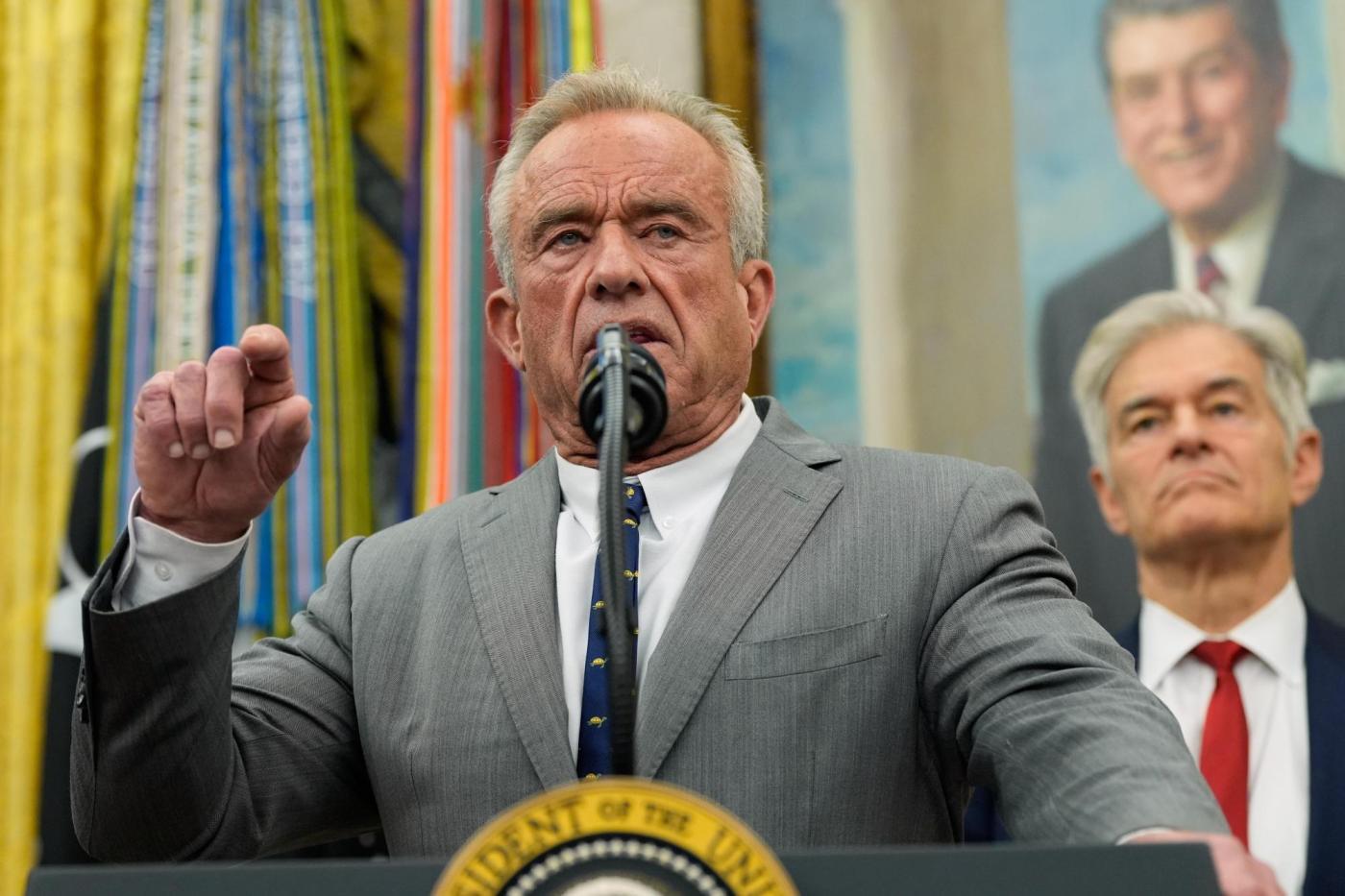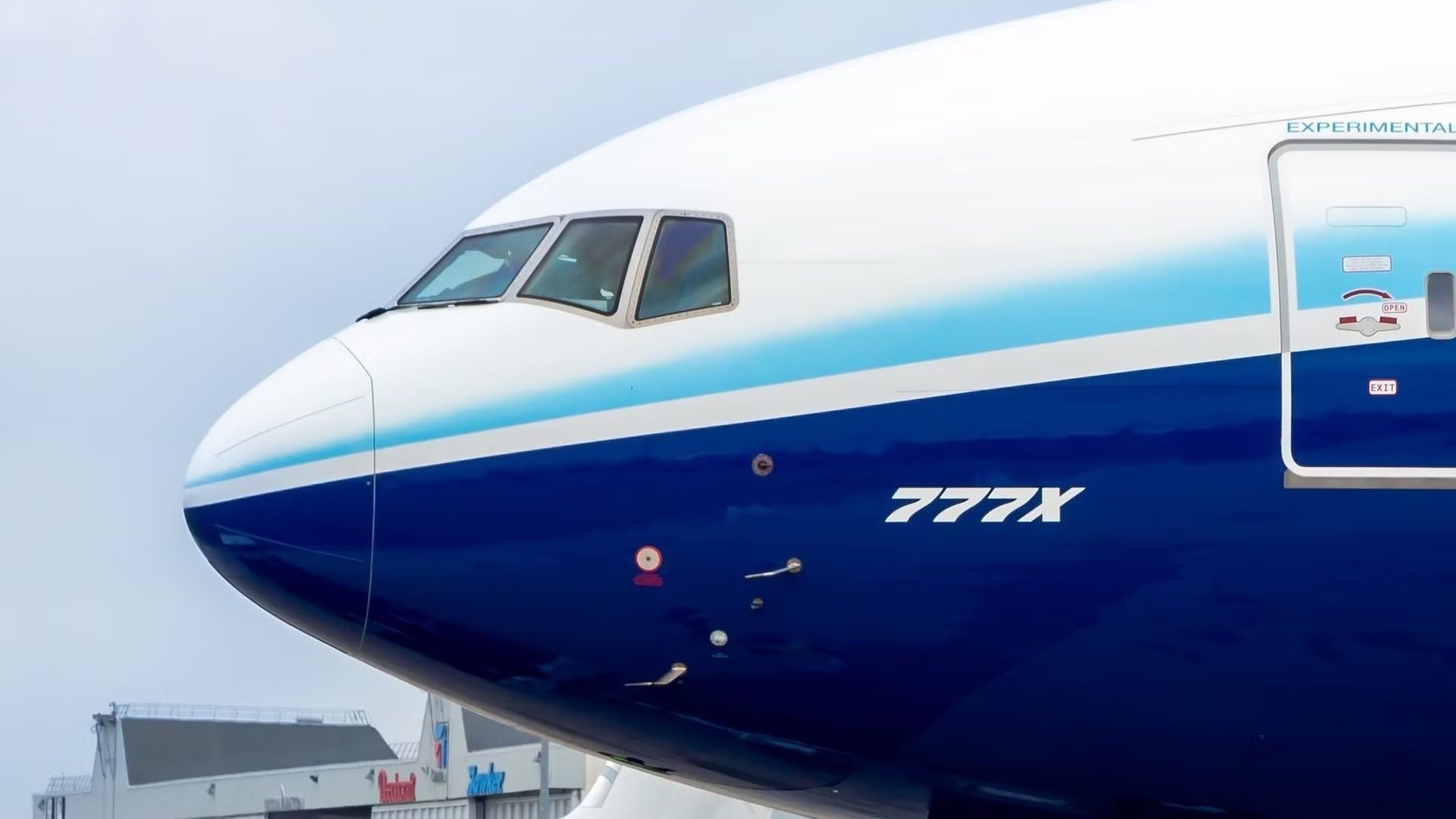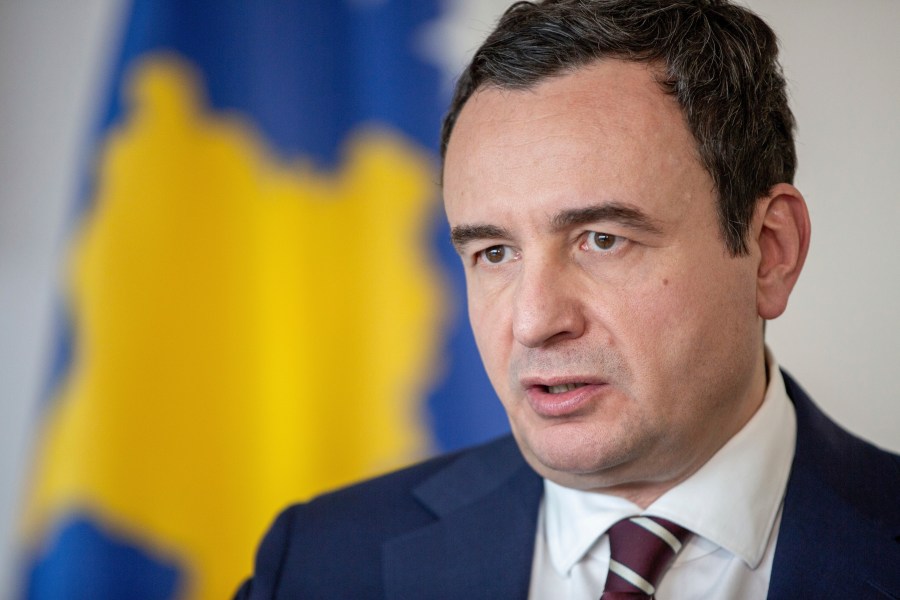The U.S. Food and Drug Administration (FDA) has announced a new initiative aimed at significantly reducing prescription drug costs across the nation. Health and Human Services Secretary Robert F. Kennedy Jr. revealed the plan during a news conference on Wednesday, stating that it will make developing biosimilar medicines more affordable. These biosimilars serve as lower-cost alternatives to biologic drugs that treat serious health conditions.
Kennedy described the FDA’s actions as “bold” and “decisive,” highlighting the importance of cutting unnecessary regulatory barriers. “We’re cutting unnecessary red tape, reducing uncertainty and making it easier for innovators to bring safe, affordable biosimilars to the market,” he said. According to Kennedy, biosimilars typically cost an average of 50% less than their brand-name counterparts, and their introduction often leads to an additional 25% reduction in brand-name prices.
This announcement aligns with President Donald Trump‘s efforts to lower drug prices for Americans. Kennedy noted that the current approval processes for biosimilars have historically prevented patients from accessing these more affordable options. “This bold action by the FDA accelerates biosimilar development, drives market competition, expands patient options and advances our mission to Make America Healthy Again,” he stated.
New Guidelines for Biosimilar Development
The FDA has released draft guidance aimed at streamlining the development of biosimilars. This guidance reflects what Kennedy described as “modern science and common sense.” The FDA’s proposed changes aim to simplify the requirements for biosimilarity studies and reduce unnecessary clinical testing, making it easier for companies to receive approval for biosimilars.
FDA Commissioner Marty Makary, who joined Kennedy at the press conference, emphasized the potential for significant cost reductions in healthcare. “Biosimilars are often far more affordable to patients and have the promise to significantly lower healthcare costs in America,” he said. The FDA plans to advance initiatives that will facilitate the approval of biosimilars as interchangeable with brand-name biologics, improving access for both patients and pharmacists.
The recent announcement follows President Trump signing an executive order in May 2023 that aims to reduce prescription drug prices by 30% to 80%. This order outlines a “most-favored nation” pricing policy, ensuring that Americans do not pay more for brand-name drugs than the lowest prices offered in countries with similar economic conditions. The president has previously stated that U.S. prescription drug prices can be five to ten times higher than in other nations, despite being produced by the same manufacturers in identical facilities.
Trump referred to the current drug pricing system as “unfair,” claiming that American consumers are being “ripped off” by pharmaceutical companies. He expressed optimism about the reforms, stating, “Our country will finally be treated fairly, and our citizens’ healthcare costs will be reduced by numbers never even thought of before.”
In addition to the FDA’s reform efforts, the Trump administration has reached agreements with pharmaceutical companies such as Pfizer and AstraZeneca to provide discounts on prescription medications. AstraZeneca has committed to listing its top drugs on TrumpRx, a platform designed to allow consumers to purchase medications directly from manufacturers.
The FDA’s initiative is poised to enhance access to essential medications while addressing the pressing issue of high drug costs in the United States. As these reforms take shape, many Americans hope for a more equitable healthcare landscape.







